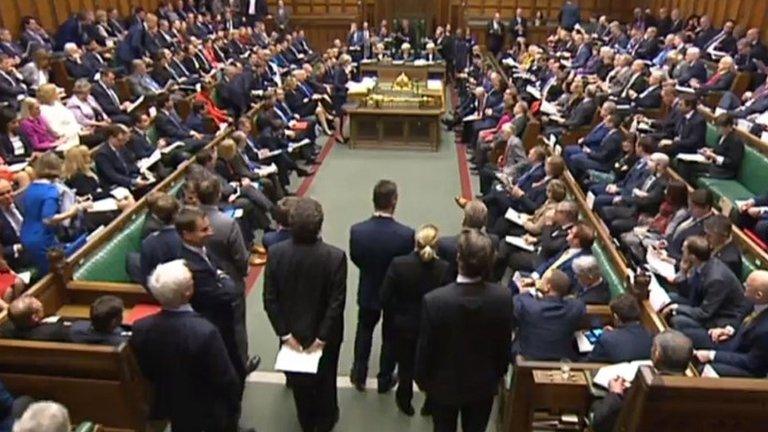Calls for more women to give evidence at select committees
- Published
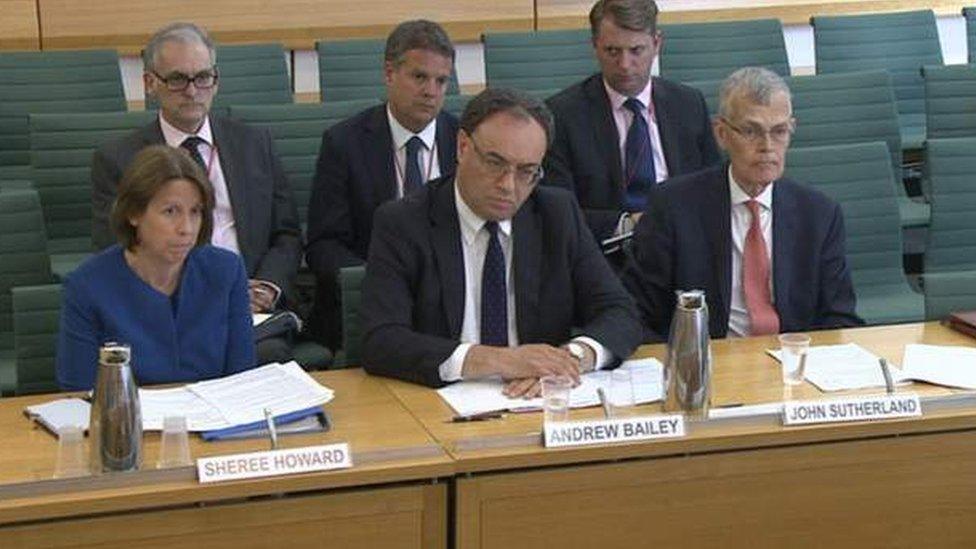
The liaison committee recommends that every panel of three or more witnesses should have at least one woman
More women should give evidence to select committees to ensure diverse views are heard, a committee has said.
Figures collected by the Liaison Committee show only 33% of witnesses over the past year have been women.
Whilst the figure is up on the previous two years - 29% in 2016/17 and 28% in 2015/16 - the committee wants more progress to be made.
A target of at least 40% female "discretionary witnesses" has been set by the end of this parliament.
Discretionary witnesses are individuals invited to give evidence, rather than "non-discretionary witnesses" - people who hold a particular position, such as ministers or senior officials.
MPs on the committee say the government needs to appoint more women to public office to address the continued gender imbalance among non-discretionary witnesses as well.
In the past year, 37% of discretionary witnesses - up from 32% in 2016/17 - and 27% of non-discretionary witnesses - up from 24% in 2016-17 - were women.
The liaison committee is made up of the chairs of 36 other parliamentary committees
The chair of the liaison committee, Sarah Wollaston, said: "Just as it is important to aim for a gender balanced parliament, so too that needs to be reflected in the diversity of the witnesses invited to give evidence at select committees.
"By focusing on this issue we hope that all committees will make further progress towards equal representation on both sides of select committee tables."
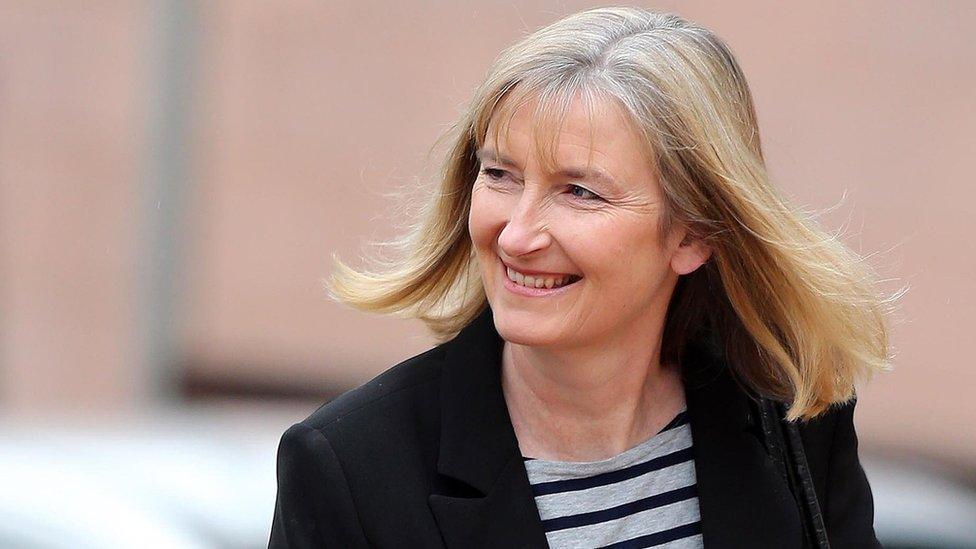
Conservative MP Sarah Wollaston chairs the liaison committee
A report from the committee recommends that panels with three or more witnesses should include at least one woman - unless there are "compelling reasons" for an all-male panel.
It also pledged to continue monitoring gender balance, with the next set of figures due to be published in December.
Liaison Committee member Maria Miller, said: "Select committee inquiries rely on top quality evidence that brings together a range of views - that includes women's views.
"Important progress is being made but, whilst all male panels are almost a thing of the past, still only one in three witnesses giving oral evidence is female."
Ms Miller, who also chairs the Women and Equalities Committee, called on organisations to "think more about the diversity of the witnesses they send to give evidence".
A number of committees have taken part in a voluntary pilot to monitor the diversity of their panels, asking witnesses for information on their gender identity, age, disability, ethnic background, religion and sexual orientation.
- Published29 April 2018
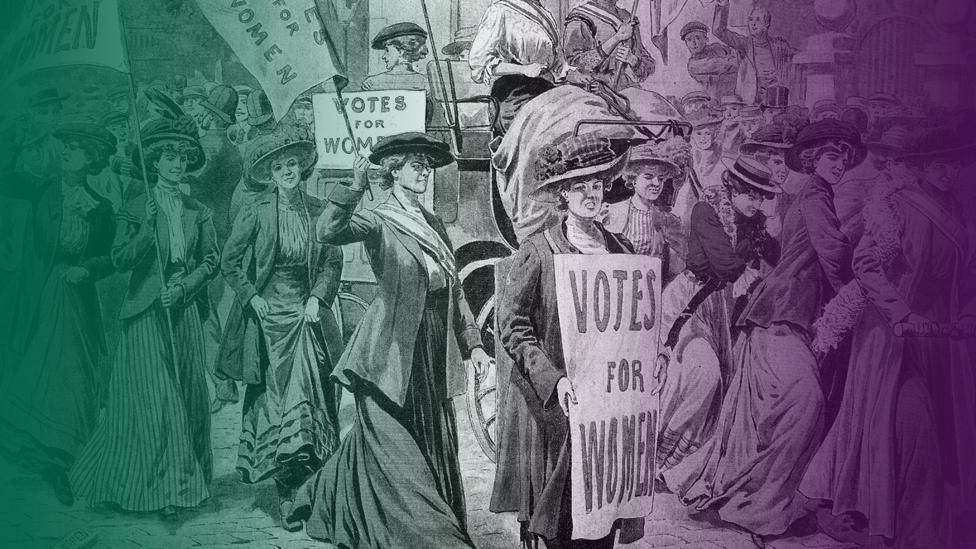
- Published24 April 2018
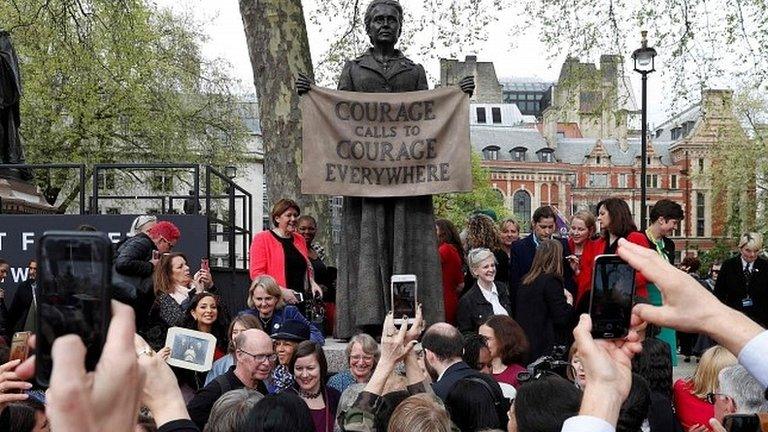
- Published10 January 2017
